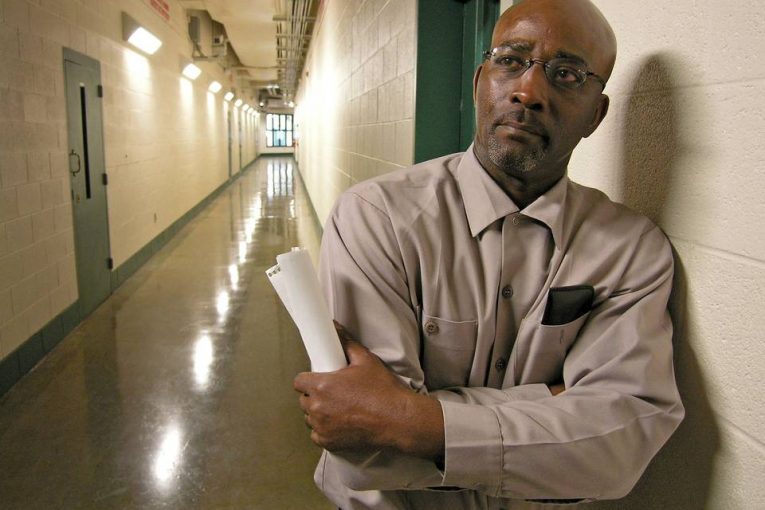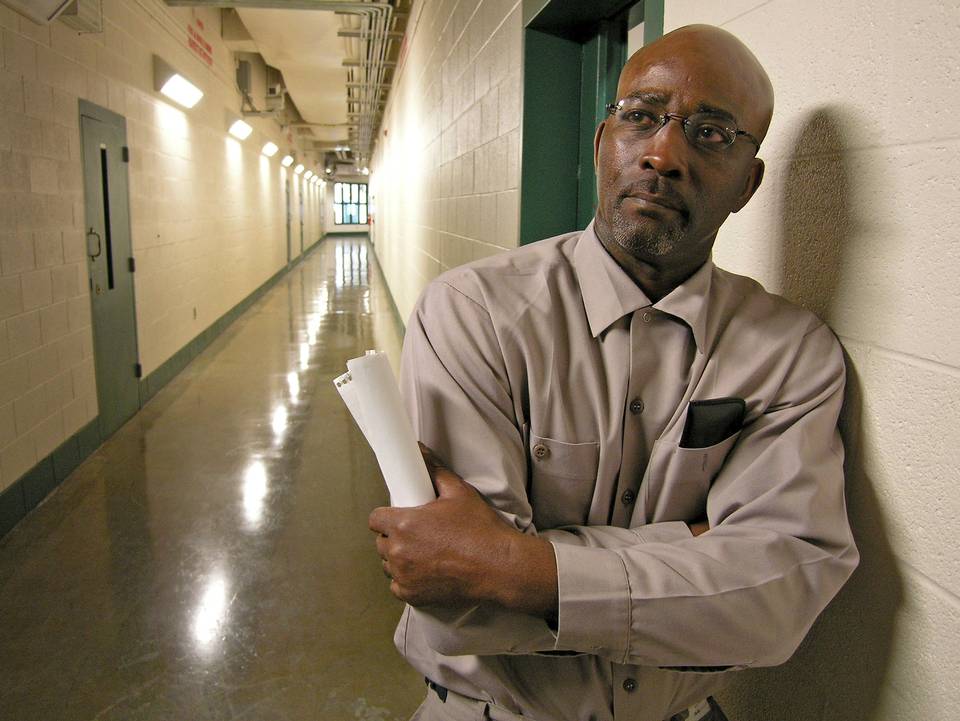

By David M. Greenwald
Last Monday, the Fourth Circuit Court of Appeals in a 9-6 en banc decision written by Judge Stephanie Thacker, nearly three months after a May hearing, ruled that there were serious constitutional errors and remanded the case back to the trial court for a new trial.
In a concurring opinion written by Judge Wynn and signed onto by Judges Thacker and Harris they note, “Without a doubt, no reasonable jury could find Mr. Long guilty based on the undeniable facts before us today: suppressed physical evidence failing to link Mr. Long to the crime scene, the perjured testimony of investigating officers, missing key biological evidence, and an eyewitness identification obtained through means now illegal in North Carolina.”
But it never got there. On Tuesday, Jamie Lau of the Duke Wrongful Convictions Clinic tweeted, “The State of NC filed a motion with the Fourth Circuit this morning asking that it immediately issue the mandate in Ronnie Long’s case. The state said it will ask the district court to enter a writ vacating Ronnie’s conviction.”
He added, “In short, Ronnie Long is coming home!”
The next day, at 5:30 pm local time, Ronnie Long walked out the door for the first time since 1976 and went home with his wife Ashleigh Long.

“I didn’t even know,” Ronnie Long told the Vanguard in a phone interview on Friday. “I talked to my lawyer, Jamie Lau, he told me ‘listen they ruled in your favor, I’m going to try to get you out by September 10.’” He said, “I’m thinking September 10, hoping I can make that day there.”
But he never got to the 10th.
“The manager called me to pack my stuff and come down to the office,” he said. “I came down to the office, I said what’s going on and he told me we’re waiting on a phone call. But we got the phone call and walked out the front gate.”
His reaction: “It should have happened before then.”
This was the view of many on the court as well.
Judge Wynn in the concurring opinion wrote that “while I am in full accord with the majority that Mr. Long would be entitled to additional discovery if it were necessary, I believe there to be no need for it. Rather, justice demands that we immediately grant Mr. Long the relief he has pursued for forty-four years.”
The judge continued, “This case exemplifies how our current habeas precedent incentivizes and rewards bad faith on the part of police and prosecutors. Our habeas precedent rewards state actors guilty of Brady violations for committing additional constitutional violations in order to subject the Brady claim to a higher standard of review. But keeping an innocent man in prison should not be considered a ‘reward.’”
Duke law professor Jamie Lau in an email to media noted, “The Fourth Circuit has now affirmed what we have said all along — that Mr. Long’s constitutional rights at trial were repeatedly violated by dishonest police officers and the suppression of evidence. No reasonable juror would ever convict Long knowing these facts, and it is time for the State of North Carolina to set him free.”
He added, “Our efforts in state court take on even more significance now, as Mr. Long’s life is potentially at stake due to the global pandemic … If North Carolina cares about fairness and accuracy in its criminal justice system, Ronnie Long must be free.”
“I’m blessed that it happened,” Ronnie Long told the Vanguard. “But with the circumstances surrounding the case it should have happened way before now.”
They said that they told his wife Ashleigh before they even told him that he was being released. He was told she was the only one that he could be released to. And on top of that she was planning to come anyway because it was her birthday.
“I’m thinking am I really getting ready to go home?” he said. “After all of this time am I really about to walk out of this front gate?
“I always said I’m going to walk out like I walked in,” he told the Vanguard.
That night, he said, he had a meal with his wife and his attorney, Jamie Lau. They sat around and talked about a few things.
“It’s amazing, man,” he said. “It’s miraculous. Ten years ago, oh, I didn’t see this far.”
He said he had always told himself “that I’m going to walk out, like I walked in.” He always believed that the lies were going to come out and that he would be free.
“I kept telling myself every year, that this is a different year,” he said. “Hopefully these lies would be exposed this year.” He said, “I kept scratching. I wasn’t going to give up. I was going to overcome all forms of adversity.”
Ronnie Long explained that he met his wife after she had written him a letter, explaining that she was going to school. Taking criminal justice classes. She said, “I think it’s wrong about what they did to you. If I can help you in any kind of way I want you to know I’m going to help you. Send me an application—so I can go see you.”
“The very next week she’s there,” he said. “She’s been around ever since. I can’t shake her. I’ve been trying to shake her—I can’t shake her.” He added, “When she latches on, she’s relentless.”
He explained that for seven years she marketed his name. “Everywhere they moved me she came with a car that has a hundred ‘Free Ronnie Long’ stickers,” he explained. He said that she drove from county to county keeping up with him the entire time.
“She brought all the elements to work and brought attention to my situation,” he said.
That brought a critical mass of attention to the case. As a result, concurrent to the legal case, was a pressure campaign on Governor Roy Cooper to grant clemency to Long. State lawmakers and religious leaders have asked him to intercede and tens of thousands have signed a petition calling for Long to be freed.
In terms of the rest of his life: He is now 65 years old. He went in as a young man.
“Hopefully I can die comfortably,” he said. “I ain’t trying to do anything that’s spectacular.”
But, beneath that sentiment comes passion and anger.
“There are a few people left in the system that have been treated unjustly,” he said. “If you launch an internal investigation into all of the cases tried in the State of North Carolina—I guarantee you, I promise you with proper representation, 75 percent of them can be overturned.”
“Oh that’s not just opinion, no, I lived that for 44,” he said. “I ain’t the only one.
“There are many people in this state behind bars unjustly,” he said.
But it’s not just North Carolina, he said. “That state of mind exists throughout the United States,” he said. “Did you know the United States has more people incarcerated than any other country?
“It really ain’t about right or wrong, truth and justice, it’s about an enterprise,” he said. “It ain’t nothing but modernized slavery.”
He said, “You have a lot of people that I see that are behind those fences that are innocent.”
The case of Ronnie Long is one of the more egregious ones, however. An innocent man spent 44 years of his life behind bars, based on errors and also lies.
In her opinion, Judge Thacker hammered the state of North Carolina for continuing to defend this case, despite an array of clear evidence that investigators withheld evidence that could have cleared Long in 1976 when he was sentenced to 80 years.
“Officers hid evidence despite knowing that doing so could lead directly to Mr. Long’s death,” Thacker wrote. “Such an action is repugnant in any context. But it takes on a particularly sinister meaning here, given our country’s historical treatment of Black men accused of raping white women.”
She concluded, “That evidence has now trickled out, revealing the truth that Mr. Long has declared for decades: he should not have been found guilty.”
—David M. Greenwald reporting
To sign up for our new newsletter – Everyday Injustice – https://tinyurl.com/yyultcf9






